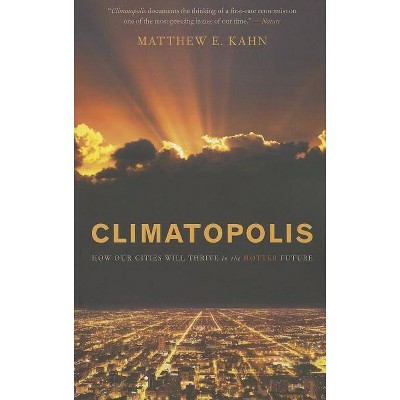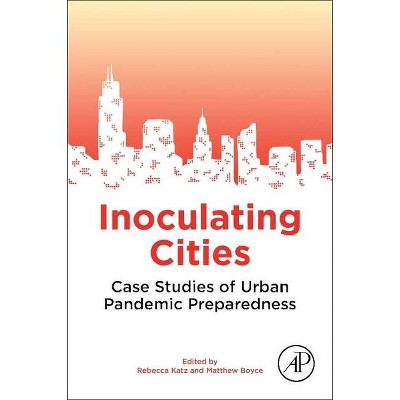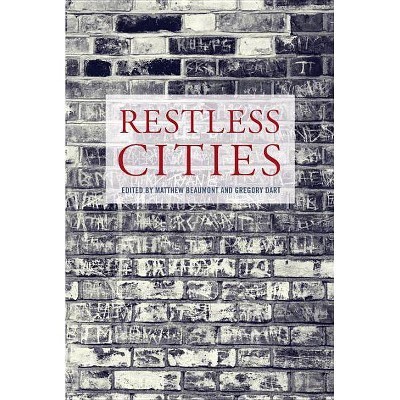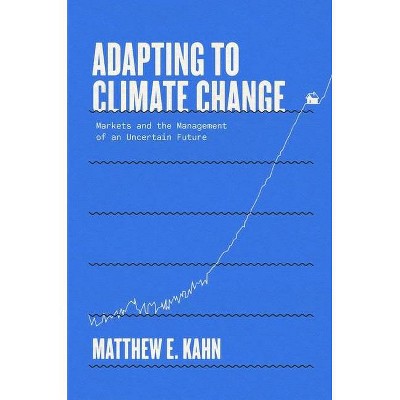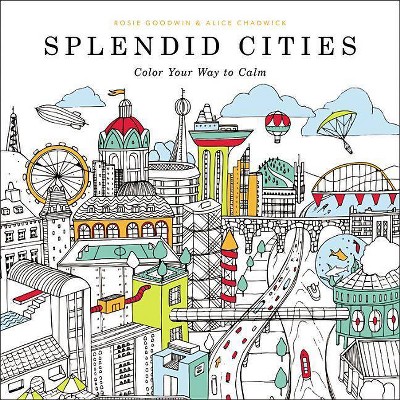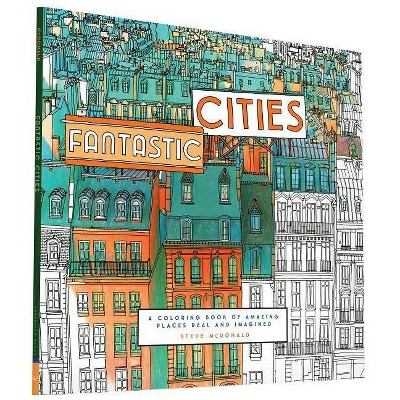Green Cities - by Matthew E Kahn (Paperback)
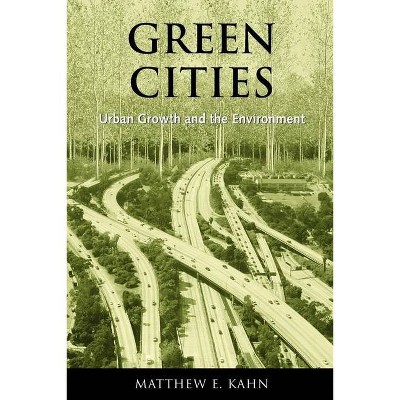
Similar Products
Products of same category from the store
AllProduct info
<p/><br></br><p><b> About the Book </b></p></br></br><p>What is a green city? What does it mean to say that San Francisco or Vancouver is more green than Houston or Beijing? When does urban growth lower environmental quality, and when does it yield environmental gains? How can cities deal with the environmental challenges posed by growth? These are the questions Matthew Kahn takes on in this smart and engaging book.</p> <p>Written in a lively, accessible style, Green Cities takes the reader on a tour of the extensive economic literature on the environmental consequences of urban growth. Kahn starts with an exploration of the Environmental Kuznets Curve (EKC)--the hypothesis that the relationship between environmental quality and per capita income follows a bell-shaped curve. He then analyzes several critiques of the EKC and discusses the implications of growth in urban population and surface area, as well as income. The concluding chapter addresses the role of cities in promoting climate change and asks how cities in turn are likely to be affected by this trend.</p> <p>As Kahn points out, although economics is known as the dismal science, economists are often quite optimistic about the relationship between urban development and the environment. In contrast, many ecologists and environmentalists remain wary of the environmental consequences of free-market growth. Rather than try to settle this dispute, this book conveys the excitement of an ongoing debate. Green Cities does not provide easy answers complex dilemmas. It does something more important--it provides the tools readers need to analyze these issues on their own.</p><p/><br></br><p><b> Book Synopsis </b></p></br></br><p>What is a green city? What does it mean to say that San Francisco or Vancouver is more green than Houston or Beijing? When does urban growth lower environmental quality, and when does it yield environmental gains? How can cities deal with the environmental challenges posed by growth? These are the questions Matthew Kahn takes on in this smart and engaging book.</p> <p>Written in a lively, accessible style, Green Cities takes the reader on a tour of the extensive economic literature on the environmental consequences of urban growth. Kahn starts with an exploration of the Environmental Kuznets Curve (EKC)--the hypothesis that the relationship between environmental quality and per capita income follows a bell-shaped curve. He then analyzes several critiques of the EKC and discusses the implications of growth in urban population and surface area, as well as income. The concluding chapter addresses the role of cities in promoting climate change and asks how cities in turn are likely to be affected by this trend.</p> <p>As Kahn points out, although economics is known as the dismal science, economists are often quite optimistic about the relationship between urban development and the environment. In contrast, many ecologists and environmentalists remain wary of the environmental consequences of free-market growth. Rather than try to settle this dispute, this book conveys the excitement of an ongoing debate. Green Cities does not provide easy answers complex dilemmas. It does something more important--it provides the tools readers need to analyze these issues on their own.</p><p/><br></br><p><b> Review Quotes </b></p></br></br><br><P><br><br><P>" "Green Cities" is a welcome addition to the rising tide of academic research that examinies urban-environment interrelationships." -- "Environmental Conservation"<br><br><P>"A Planetizen Top 10 Book of 2007" -- "Planetizen", 11/20/2006<br><br><P>"Green Cities offers an excellent introduction to some of the basic economic principles of resource use, a wealth of data addressing the relationship between income and environmental externalitites, and a strong argument for the benefits of the market." -- "The Journal of Environment and Development", 9/1/2007<br><br><P>"In a clear and straightforward manner, [Kahn] illuminates the complex relationship between humans and the environment and convincingly makes the case that growth can be expected to generate both positive and negative effects on environmental quality in cities." --Michele Betsill, Colorado State University, "Global Environmental Politics"<br><br><P>"It is genuinely refershing to see a scholar of Kahn's stature make an area of research this comples and wide ranging so accessible and, for this reason, I believe that the book is certain to have a major impact." -- "Journal of Regional Science", 10/1/2007<br><br><P>"Kahn has provided an important contribution to the analytical discourse on the greening of cities. He has successfully managed to present relatively esoteric economic methods for an informed policy audience within the span of a short paperback book, which is itself an achievement." --Saleem H. Ali, University of Vermont, "Journal of the American Planning Association"<br><p/><br></br><p><b> About the Author </b></p></br></br><P>Matthew E. Kahn is a professor of economics at the Fletcher School at Tufts University. He has published widely in the fields of environmental and urban economics, including research on sprawl, public transit, and the costs and benefits of environmental regulation. He also blogs on environmental and urban economics at "greeneconomics.blogspot.com."
Price History
Price Archive shows prices from various stores, lets you see history and find the cheapest. There is no actual sale on the website. For all support, inquiry and suggestion messages communication@pricearchive.us
